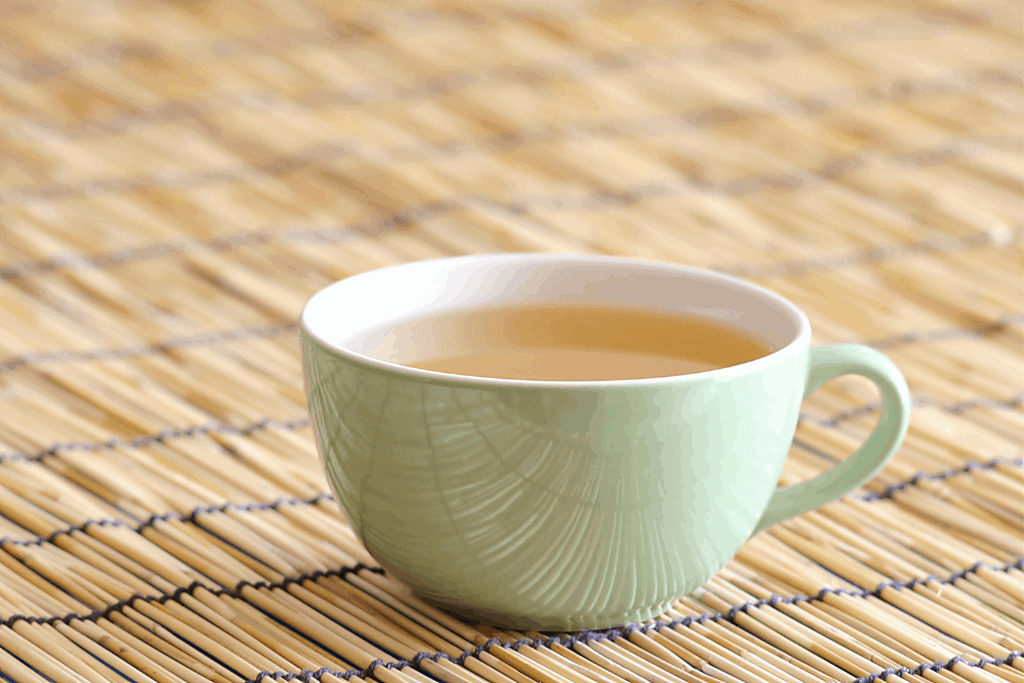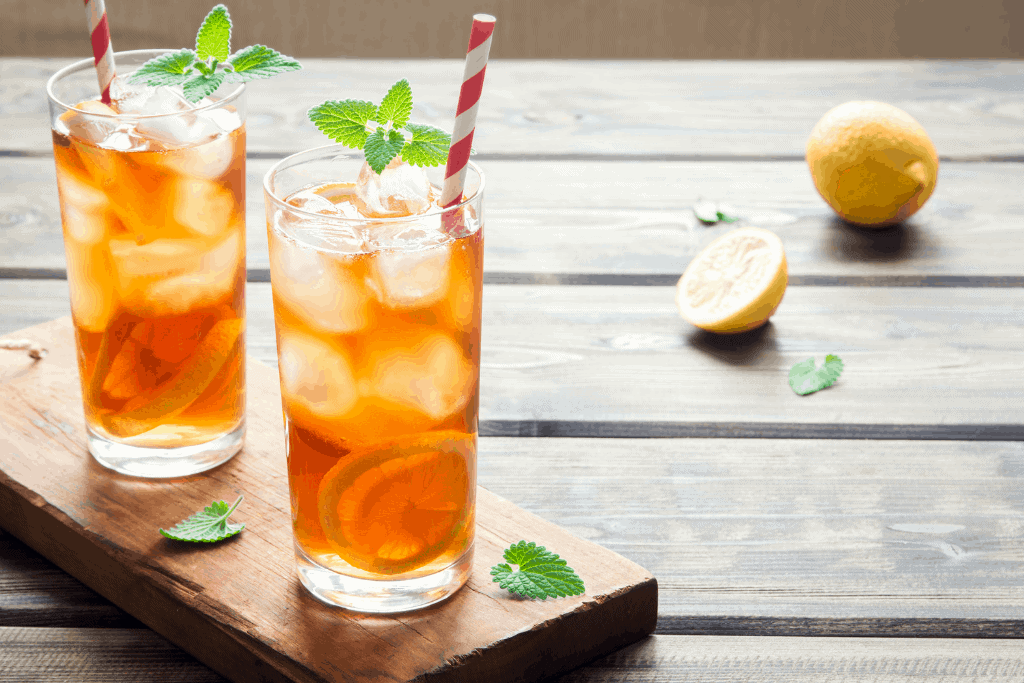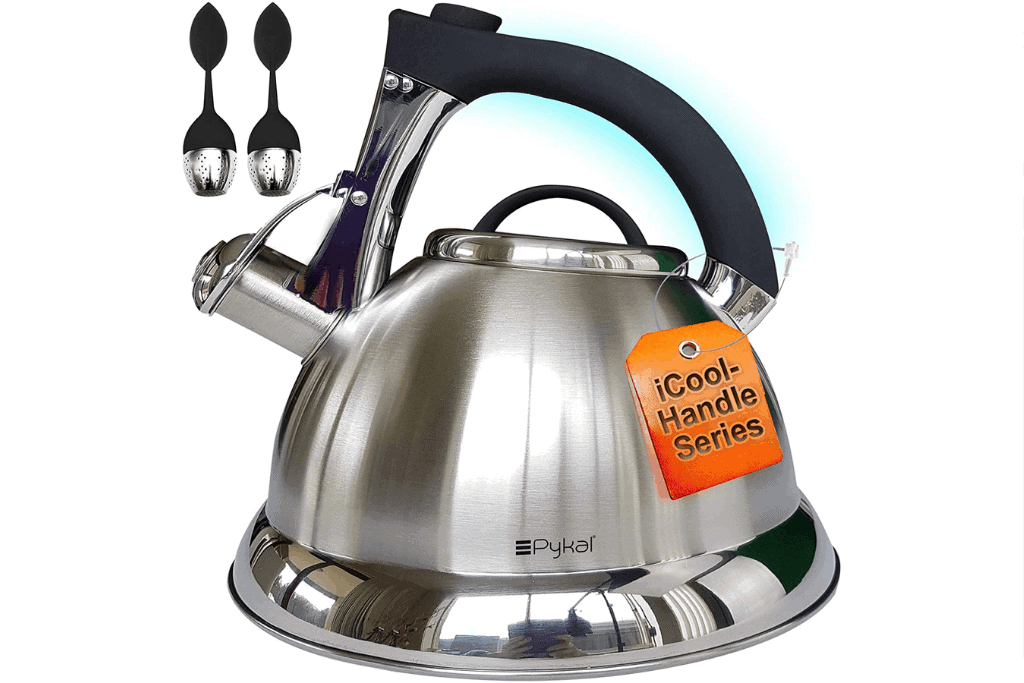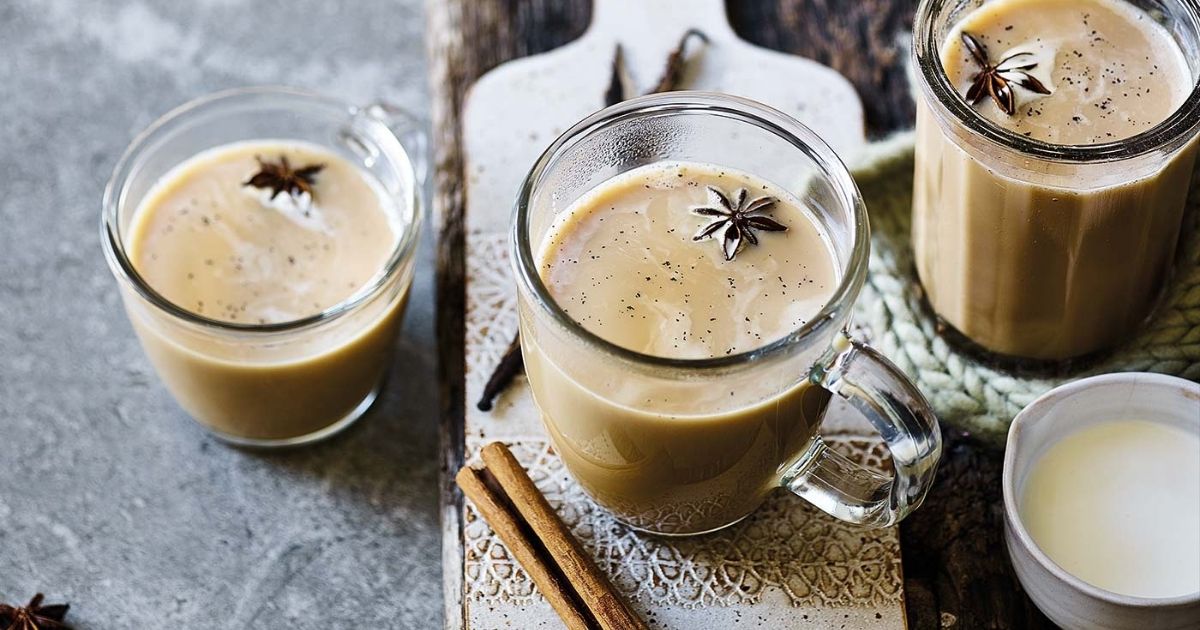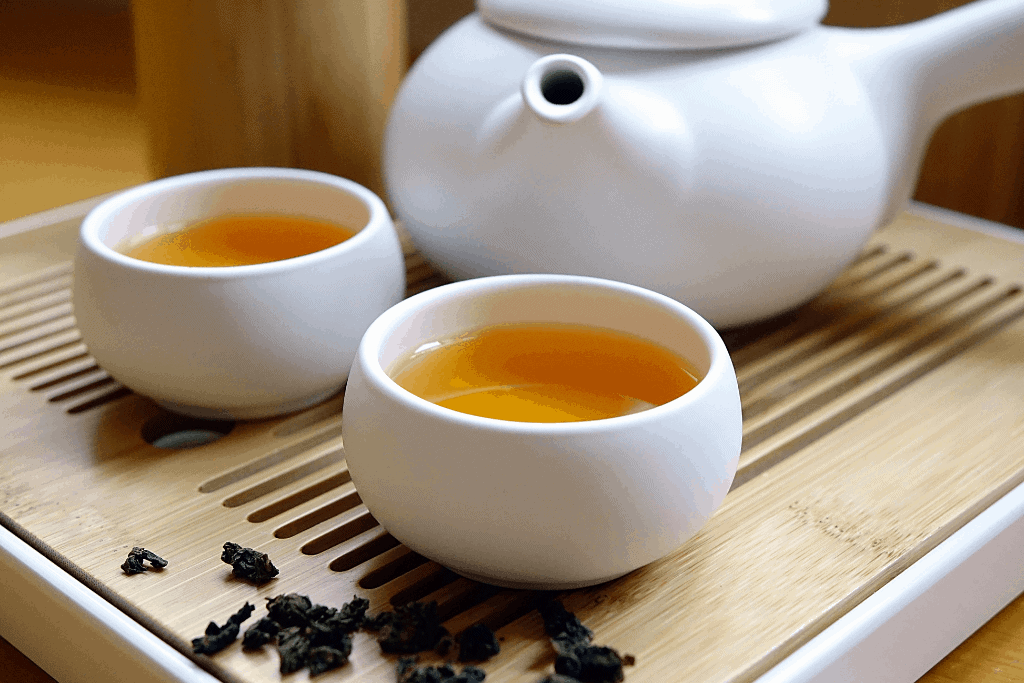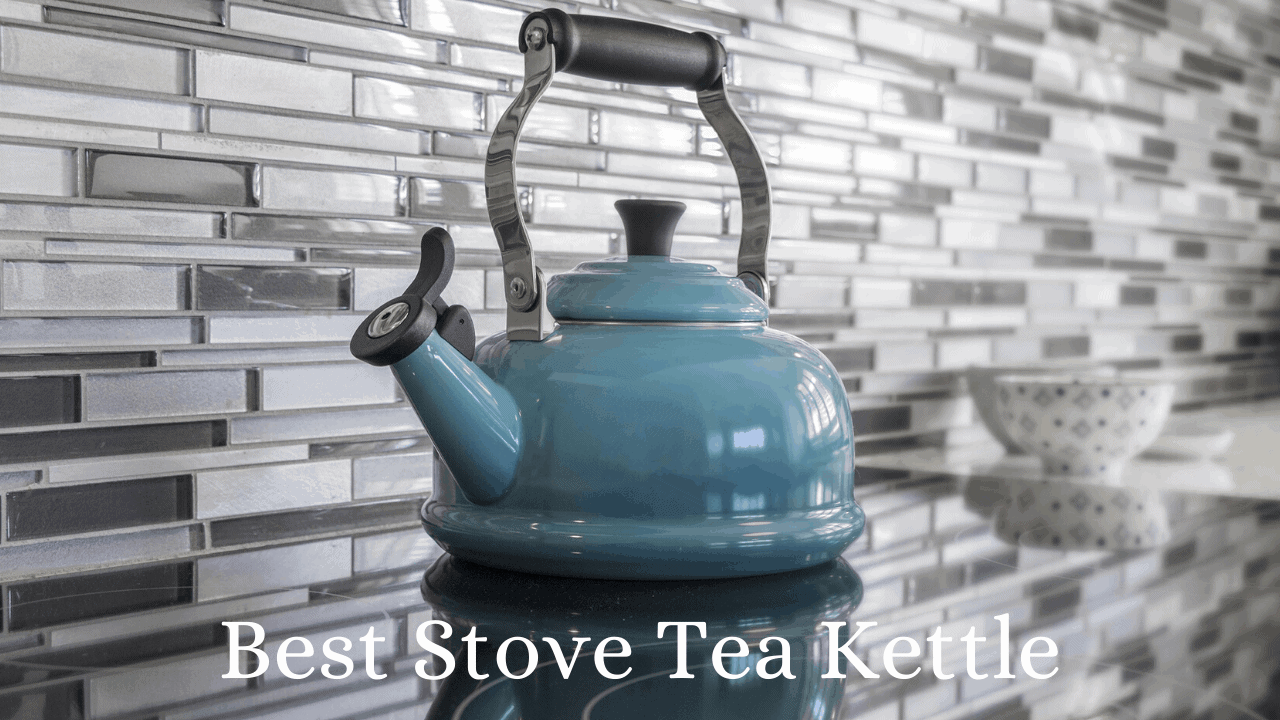White tea comes from the same plant as Green, Oolong and Black teas, the Camellia Sinensis plant, and is usually harvested once a year in Spring, The leaves and buds are then plucked, before being gently dried in the sun. However! Since white tea is processed from the same planet as other teas that are known for having caffeine, Does this mean white tea contains caffeine?
The short answer is YES! white tea does contain caffeine but.. this is much lower than other teas like black or green tea, which can have up to 35 to 70 milligrams of caffeine, While white tea contains only 30 to 55 milligrams. This is mainly due to the processing time and age of the tea leaves when harvesting.
So as you know white tea is made from the camellia Sinensis plant which is the same as black and green tea. But what makes them different from each other is how the teas are processed, this is what gives them there own unique taste.
Related Article:
White tea is made entirely from leaf buds of the camellia Sinensis plant, that are covered with white hairs. The newly formed buds are plucked before they open, usually in early spring. The buds are then withered and dried slowly at low temperatures.
By processing the tea in this way, you end up with a mild but sweet flavor, known as white tea, which has now gone on the become one of the most popular drinking teas in the world.
There are several types of white tea for example there’s the Silver Needle, White Peony, Long Life Eyebrow, and Tribute Eyebrow all are made from the newly formed leaf buds.
How Much Caffeine Is In A Cup
So now you know that white tea does contain caffeine, ‘BUT’ do you know how much caffeine is actually in a single cup of tea? This is a question that’s asked very often and is a tough one to answer.
The reason is, this depends on many factors, for example, the brewing time, the brewing temperature, and also the tea grade, how good your tea is.
Brewing Time:
How long you brew your tea can definitely add to the amount of caffeine that’s released. When the tea is brewed for 30 seconds this can contain 35 milligrams of caffeine, but if brewed for five minutes or longer, for example, this increases the figure to 50 milligrams.
By brewing your tea for longer, not only does this increase the caffeine level but also increases the antioxidants in the tea, that are well known for protecting the cells in the body from free radicals.
Brewing Temperature:
Brewing your tea at a certain temperature will determine the amount of caffeine that is released, and brewing at a lower temperature, just under boiling point, will result in less caffeine in your tea. The best temperature for brewing your white tea should be between 170 to 185 F/76 to 85 C.
If the temperature is higher then the caffeine levels will increase and so will the antioxidants, but it really comes down to your preference and how you like your tea.
Comparison:
All teas contain caffeine but white tea has less caffeine than black, green or Oolong tea. Yet all three of these teas put together still have less caffeine than coffee. Below is a comparison of each different types of tea and how much caffeine mg is in each cup.
- White tea contains 15 to 20 mg per cup.
- Black tea contains around 50 mg per cup.
- Oolong teas contain about 45 mg per cup.
- Green tea contains 30 mg of caffeine per cup.
- Instant tea contains an average of 25 mg per cup.
So as expected white tea has less per cup than other teas, but as before the amount of caffeine in your tea can vary depending on how you brew your tea. Did you know a cup of coffee can contain up to 150mg of caffeine?
White Teas And Their Caffeine Content
Now another important factor with the caffeine levels is the quality of your tea, the tea grade. There are many varieties of white teas to choose from and having a good quality white tea, will be naturally high in antioxidants and low in caffeine.
White Teas With High Caffeine:
Some of the best and highest-grade white teas, that have the lightest color, are made from the tips of the leaf buds, and because of this, they contain more caffeine.
This is because caffeine is produced by the plant as a defense against insects. White teas like the Silver Needle (Baihao Yinzhen) and the Tribute Eyebrow (Gong Mei) are all good quality teas but unfortunately do have the highest caffeine count.
White Teas With Low Caffeine:
Now not all good quality white teas have high amounts of caffeine, take the white peony (Bai Mudan) and the Long Life Eyebrow (Shou Mei) for example these teas contain a lower amount of caffeine than the Silver Needle.
The white peony contains leaf tips but is mixed with the leaves on the stem and because the leaves are not as young as the White Hair Silver Needle tea, this results in less caffeine. Long-life tea is also made in a similar way again resulting in less caffeine.
Now white tea is traditionally grown in the Fujian province of China, but there some white teas that are now being grown and harvested in Darjeeling India and in other regions around the world. White teas that tend to be harvested outside of China have shown to have higher levels of caffeine.
Alternatives
Now there are some decaf teas you can try, but there are people who do tend to avoid decaffeinated teas because of all the chemicals used to extract the caffeine from the leaves. Chemical solvents such as methylene chloride and ethyl acetate can leave behind a chemical residue on the leaves, giving your tea a strange taste.
Related Article:
But not all teas go through this process to remove caffeine. Another way is the CO2 method of decaffeination, which is far better than using chemical solvents and it doesn’t leave a nasty taste behind or any chemical residues on your tea. One of the best tea brands that use this co2 method and is all organic is Clipper Teas.
Blends
Finding the right blend with the right taste can be hard for some people especially if you’re just moving over to tea or are considering changing to a different type of tea.
If you’re just moving over to tea it’s best to start off with tea bags until you find the tea and flavor you like. Once you’re happy with the tea and enjoy the taste then amp things up a bit and try the same tea but using fresh tea leaves, you can then enjoy your favorite tea at its peak.
Take a look at some of these recommend white tea blends below, that also have low caffeine levels, organic and full of flavor and packed with antioxidants.
Instant White Tea:
- Clipper Organic Everyday Tea
- Prince of Peace Organic White Tea
- Imozai Organic White
- Legends of China White Tea
Now if you’re already drinking fresh tea and are considering changing to a different type and flavor, here’s a list of some fresh white teas that you might find interesting with a medium caffeine level.
Fresh White Tea:
- White Coconut Crème Tea
- White Tip Jasmine Tea
- White Peach Tea
You can find all different types of fresh organic teas and flavors at the website called: Art of Tea there they specialize in fresh tea.
Conclusion
So does white tea have caffeine? YES all-natural teas have caffeine, but as you well know now there are decaffeinated teas, but again this is really down to your preference and what you like. Just remember there are Organic decaf teas which can be a much healthier option.
If you prefer the standard fresh tea but are worried about your caffeine intake then the best option would be to go for a tea that has low caffeine, like the popular white peony tea.


